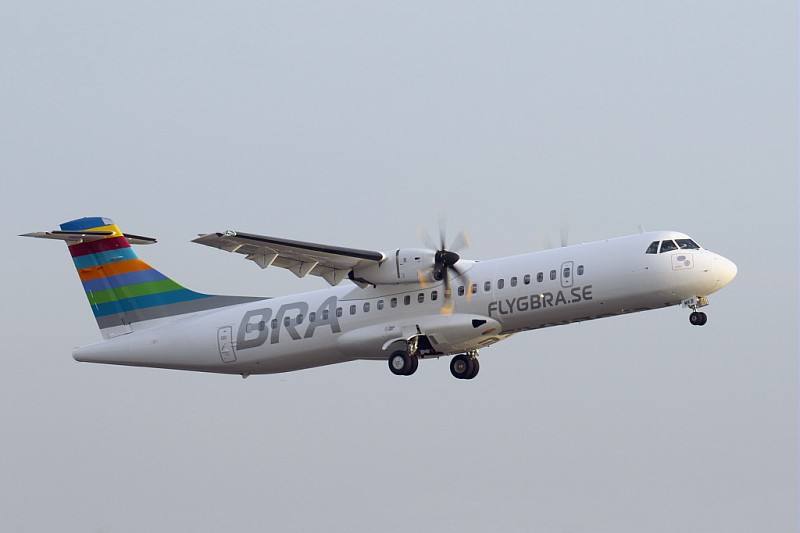An ATR 72-600 operated by Swedish carrier BRA took off from Stockholm-Bromma on 1st February for a flight to Umeå fueled with a mixture containing 45% fossil-free used cooking oil, marking the first biofuel-powered flight of an ATR aircraft.
The airline, which operates from its main hub of Stockholm-Bromma to twelve Swedish regions, carries one-third of Swedish domestic traffic. BRA (former Braathens Aviation, Malmö Aviation, Braathens Regional and Sverigeflyg) has started replacing its 12 Saab 2000s (50 seats) with larger, more fuel-efficient ATR 72-600s (70 seats). It currently operates eight ATR 72-500/600s, along with 10 AVRO RJ 100s and two RJ 85s. In case you're wondering, "bra" in Swedish means "good".
Though the milestone flight was fueled with used cooking oil, ATR notes that several research and development initiatives are currently underway in Sweden to produce biofuels from different types of wood. In Sweden, forests cover more than 50% of the country, and grow at a rate of 120 million cubic meters annually. Making domestic air traffic in Sweden completely fossil-free would require less than 2% of the total annual forest growth.
ATR offers support to customers and local governments in developing a comprehensive business plan for alternative fuels, from fuel selection to routing, certification and availability. However, as ATR CEO Christian Scherer underlines, the main challenge today is to achieve large-scale production of biofuels at affordable costs.
In another Swedish biofuel initiative, on 5th January an SAS A320neo became the first aircraft fueled with biofuel at Stockholm-Arlanda airport. The event was notable as the biofuel was handled for the first time through the regular logistics chain for aviation fuel. The fuel — containing 10 % biofuel obtained from used cooking oil — was purchased by Swedish airport operator Swedavia, which says the event shows that the aviation biofuel market is on its way to maturity.
Meanwhile, in spite of these developments, Swedish airlines face the prospect of paying a passenger tax starting in January 2018, if the government follows the recent recommendations of an official commission. The tax, intended to offset the environmental impact of carbon emissions, has been condemned by IATA as “inefficient and ineffective”, based on experience in other European countries.

